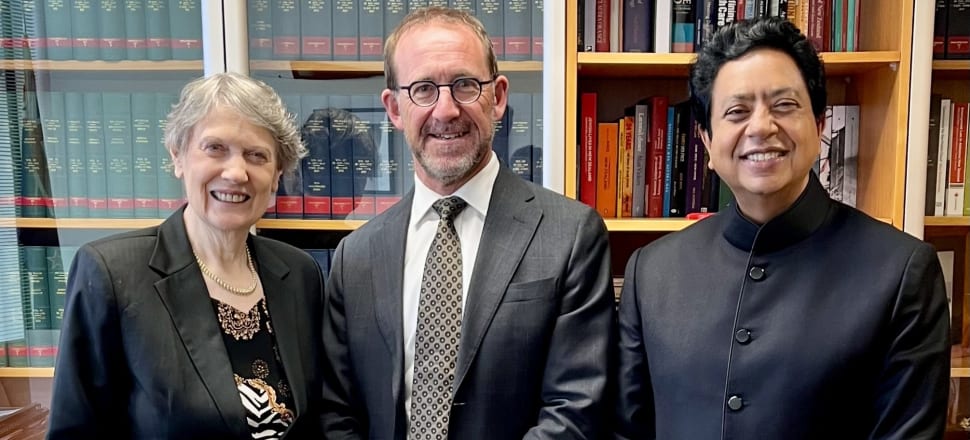
As autocracies grow stronger, countries like New Zealand must stand up for open democracy, the head of a multilateral transparency initiative says
New Zealand should take on a greater leadership role in open government to help fight against rising authoritarianism and democratic backsliding around the world, the head of a multilateral transparency initiative says.
Open Government Partnership chief executive Sanjay Pradhan says the Government can also learn from other nations on issues like lobbying disclosure, while also acknowledging concerns about Kiwi civil society organisations being shut out of the policy creation process.
Pradhan told Newsroom his New Zealand visit was a chance to speak to officials and transparency advocates about the initiative’s work, as well as his concerns about the wider global environment.
READ MORE: * 'Not achieved': Civil society grades Hipkins on open government work * Call for official information penalties following Nash saga
In addition to external threats to democracy, seen “most visibly and egregiously from Russia’s invasion of Ukraine”, there were also internal threats as a result of citizens viewing their governments as being disconnected from their concerns or captured by special interests.
“That has fuelled the rise of populist leaders who stoke citizen distrust and anger to say ‘I will be the saviour’. They rise to power, spread disinformation and undermine democratic institutions…and in that context, we see OGP as a countervailing force, as a force for renewing democracy and for standing up against authoritarianism.”
Pradhan said New Zealand was “a real leader” in some aspects of open government, citing its high rankings in both The Economist’s democracy index and Transparency International’s perceptions of corruption index.
“I know that in the pandemic … that transparent dissemination of information to the citizenry, which helped them take action, was one of the things the rest of the partnership was looking to New Zealand for. We had the US and other countries which were not that transparent, and it cost people's lives.”
However, he said the Government had room for improvement when it came to the co-creation process for its triennial Open Government Partnership action plan, which sets out specific commitments to improve accountability, transparency and citizen participation in decision-making.
Persuasion rather than punishment on shortcomings
Civil society groups have previously criticised the Government’s lack of ambition as well as its failure to properly include their voice, describing the latest plan as containing proposals “so weak as to be a joke”.
Pradhan said New Zealand’s approach to developing its action plans was “candidly different” from other countries, which focused on building more meaningful partnerships between the government and outside groups and led to stronger reforms.
The Government had acknowledged in its discussions that change was needed, and was working on a reform of its stakeholder forum processes.
While the OGP had some punitive measures at its disposal for countries that fell short of its expectations, such as giving a formal warning, a more supportive approach was appropriate for countries such as New Zealand.
“In our experience, what works a lot better is persuasion, inspiration, positive examples and support. You come and try to mediate and understand the perspectives - sometimes these are issues of trust and you try to bridge across those.”
“The club of autocrats has become stronger so the club of democracies needs to become stronger. That is what we are trying to convene, and that ties it back to visits here and elsewhere, because you need more of these countries joining together and amplifying their voice.” – Sanjay Pradhan, Open Government Partnership
Referring to recent concerns in New Zealand about the role of lobbyists, Pradhan said the country could learn from about 20 other Open Government Partnership members with registers allowing the public to monitor meetings and donations between lobbyists and public officials.
He had met with Public Service Minister Andrew Little, who was keen for New Zealand to be doing more both domestically and internationally.
The partnership wanted New Zealand to play a “visible, full leadership role” in its efforts to build a coalition of nations standing up for democracy at a time when it was under threat.
“The club of autocrats has become stronger so the club of democracies needs to become stronger. That is what we are trying to convene, and that ties it back to visits here and elsewhere, because you need more of these countries joining together and amplifying their voice.”
Asked whether New Zealand should take an official position on the Open Government Partnership’s steering committee, as it had been invited to do (but declined) in the past, Pradhan said it was up to the Government to decide, but its strong international reputation would need to be matched with domestic reforms.







